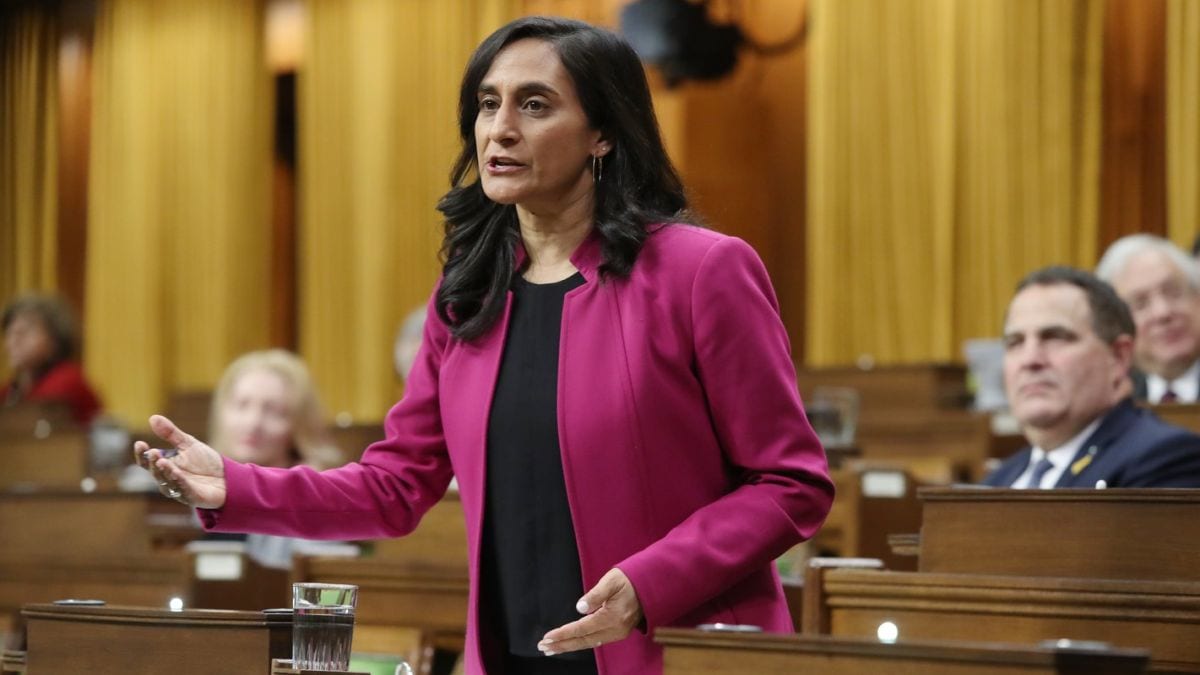

Anita Anand's recent appointment as Canada's Minister of Foreign Affairs marks a significant moment in Canadian politics and carries considerable implications for Canada-India relations. Anand, the first Hindu to hold this position in Canada, brings a unique perspective shaped by her Indian heritage and distinguished career in law, academia, and public service.
Born in Kentville, Nova Scotia, to Indian immigrant parents, Anand's connection to India is deeply rooted in her family's history. Her mother hailed from Punjab, and her father from Tamil Nadu. She has often spoken of her upbringing, influenced by her parent's values of service. This background, combined with her deep understanding of Canadian values, positions her uniquely to navigate the complexities of the Canada-India relationship.
Anand's rise in Canadian politics has been meteoric. She was first elected as a Member of Parliament for Oakville in 2019. Before becoming Foreign Minister, she held several key portfolios, including Minister of Public Services and Procurement during the COVID-19 pandemic, where she oversaw Canada's vaccine acquisition efforts. She also served as Minister of National Defence, where she led efforts to provide military aid to Ukraine and address sexual misconduct within the Canadian Armed Forces. Most recently before being appointed as Foreign Minister, she was Minister of Transport and Internal Trade, and even briefly Minister of Innovation, Science and Industry.
Her appointment comes at a critical juncture for Canada-India relations, which have been strained in recent years. Tensions escalated following the 2023 assassination of Hardeep Singh Nijjar, a Khalistani activist, in Canada, leading to diplomatic expulsions and a freeze in trade negotiations. The Canadian government's allegations of Indian involvement in the killing further exacerbated the situation, leading to a period of heightened mistrust and strained diplomatic ties.
Despite these challenges, there are signs that both countries are seeking to reset the relationship. Canada's new Prime Minister, Mark Carney, has expressed interest in rebuilding ties with India, recognizing its importance as a major global economy and a key partner in the Indo-Pacific region. Similarly, the Indian Ministry of External Affairs has indicated a desire to rebuild relations based on "mutual trust and sensitivity."
Anand's role as Foreign Minister will be crucial in navigating this delicate situation. Her Indian heritage and understanding of both Canadian and Indian cultures could facilitate dialogue and help bridge the existing divide. Her previous role in shaping Canada's Indo-Pacific Strategy may also indirectly benefit Canada-India relations, given their shared interests in the region. Some observers feel that her appointment could lead to improved trade agreements, enhanced defense cooperation, and better immigration policies.
However, Anand also faces significant challenges. The Khalistan issue remains a major point of contention between the two countries, with India expressing concerns about the activities of pro-Khalistan groups in Canada. Resolving the Nijjar case and addressing India's concerns about extremism will be crucial for rebuilding trust.
Despite the complexities, Anand's appointment offers a glimmer of hope for a more positive trajectory in Canada-India relations. As the first Hindu Foreign Minister of Canada, she brings a unique perspective and a deep understanding of both cultures, which could prove invaluable in navigating the challenges and opportunities that lie ahead. Her ability to balance domestic multicultural sensitivities with international relations will be key to fostering a stronger and more resilient partnership between Canada and India.